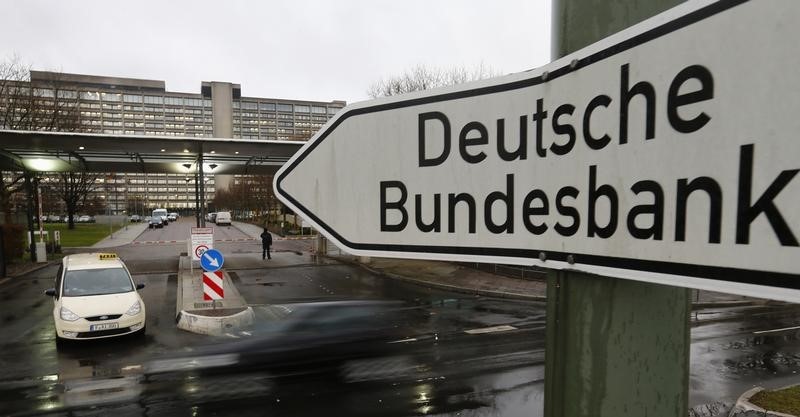By Geoffrey Smith
Investing.com -- Germany's central bank warned Friday that a full embargo on Russian energy purchases could take 5% off Germany's expected GDP this year, derailing the post-COVID recovery and tipping Europe's largest economy back into a severe recession.
The Deutsche Bundesbank said total costs to the German economy from a halt to purchases of Russian oil, gas, and coal could cost 180 billion euros ($195 billion), a far higher estimate than those provided by many of the country's leading private-sector economists.
Its intervention gives a crucial degree of support to beleaguered Chancellor Olaf Scholz, who has repeatedly watered down sanctions proposed at European Union level to punish Russia for its invasion of Ukraine. That opposition has drawn fierce criticism from Germany's European allies and from Ukraine's President Zelensky, who argue that the country's payments to Moscow are helping to finance the most destructive war in Europe since World War 2.
At the start of the war, Germany was drawing over half of its natural gas supplies and over one quarter of its oil supplies from Russia. Scholz's refusal to go along with proposals - led by the U.S. and the EU's members in eastern Europe - has been based on the fact that there is no immediate alternative to those supplies, especially for natural gas. The country's chemicals industry, which uses natural gas as its biggest feedstock, would be particularly hard hit.
The Bundesbank also warned that the need to find replacement sources of energy would put a rocket under inflation, adding over 1.5% percentage points to this year's consumer price index and over 2 percentage points to next year's.
The central bank warned that its forecasts were subject to extreme levels of uncertainty, given the underlying situation with the war.
Critics of Scholz's position were unconvinced by the new study. Moritz Schularick, Professor of Economics at the University of Bonn, said there was nothing new in what he called "ballpark figures," adding that "2% recession and 2.5% more inflation is hardly the end of the German economy."
"The effects can be cushioned with good and proactive policy," Schularick told Investing.com. "I think the debate is settled that there will be costs but it can be done. They (just) don’t want to do it."
Scholz's critics argue that cost estimates for an embargo - inevitably - fail to take into account the ultimate costs of not imposing one, which may include years of elevated defense spending to guard against a resurgent Russia pushing further into its old empire in eastern and central Europe, and possibly a direct confrontation between NATO and Russia.
However, the Chancellor received support from an important source on Thursday, when U.S. Treasury Secretary Janet Yellen warned that a full embargo could do "more harm than good."
"We need to be careful when we think about a complete European ban on, say, oil imports," Yellen said.
The Bundesbank's report comes only hours after the Russian government gave its clearest indication yet that it views the war in Ukraine as one of conquest and territorial expansion. Russian newswires reported Major General Rustam Minnekayev, the deputy commander of Russia's westernmost military district, as saying that the army plans to secure full control of southern Ukraine, all the way up to the Russian-sponsored breakaway state of Transnistria in Moldova. That would deprive Ukraine of its entire coastline and cut off its access to world markets for key exports such as grain and vegetable oils.
